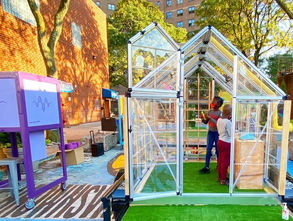
PROGRAM RESOURCES
Looking for inspiration? Need to know who to connect with in the City of Columbus? Want to learn a bit more about placemaking? We've got you covered with a variety of resources.
We know that resources can be overwhelming so if you have a question or want more one-on-one assistance, we're here to help! Get in touch with us and we are happy to assist you.
GET INSPIRED. BE CREATIVE.
We invite 614 Beautiful participants to dream big when thinking about proposals. Below are a few examples of creative placemaking efforts that include elements of pocket parks, landscape enhancements, streetscape enhancements, and public art. The aim of the game is to activate a place, get people together, and celebrate the spirit of Columbus. Click each image to learn about what others are doing.
PLACEMAKING RESOURCES
Interested in learning more about placemaking? Below are resources that may help you plan, implement, and dream towards your own proposal.
INFO SESSION RECORDINGS
Join us on Monday, September 15th from 5:30-6:30PM for a live information session. We'll go over application requirements, best practices, and tips for applying. The session will end with a live Q&A session, where viewers can ask questions.
Register HERE to attend.
Previous years info sessions are available below. Please note that applications requirements have changed slightly for the 2025 grant cycle. However, these videos have valuable grantee roundtables and placemaking information you might find valuable. Check them out!
For convenience, we've added any questions asked in the previous info sessions to the FAQ section of the website.
CONNECT WITH CITY OF COLUMBUS RESOURCES
There are a variety of city resources that are here to serve you. Not able to find what you are looking for. Contact us so we can better connect you to the resource you need.
COMMUNITY GARDENS
While we recognize the importance of gardens and urban agriculture in our communities, it is not the intention of the 614 BEAUTIFUL program to have proposals that are exclusively community gardens.
If you are interested in exploring opportunities for a community garden, or utilizing a vacant lot, get in touch with the City Land Bank (845 Parsons Avenue, Columbus, OH 43206, 614-645-5263).
CONNECT WITH A COMMUNITY MEMBER
Are you interested in providing a service to a community member? Looking to join in with others in your neighborhood? Below are individuals who are looking to connect. Are you looking to be a part of a team? Contact us with more information by clicking here.
























